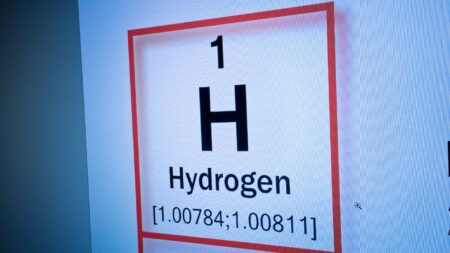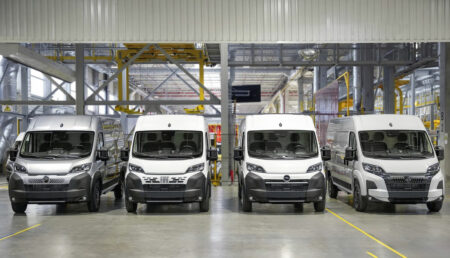In conjunction with worldwide research partners, a CoorsTek Membrane Sciences development team has successfully developed a scalable hydrogen generator that produces hydrogen from electricity and fuels such as natural gas, biogas, and ammonia with near-zero energy loss.
“Energy efficiency is critical to hydrogen’s future as a clean fuel.” “Our research shows that protonic membranes can efficiently produce hydrogen from ammonia, natural gas, and biogas, implying that hydrogen fuel cell cars will have a lower carbon footprint than electric cars charged from the grid,” said Irene Yuste, a chemical engineer at CoorsTek Membrane Sciences and a PhD candidate at the University of Oslo.
Proton ceramic membranes are electrochemical energy converters that work by breaking hydrogen atoms into protons and electrons after dividing hydrogen-containing substances like water or methane. Protons pass through the solid ceramic membrane, whereas electrons pass via a metallic conductor connected to a power source. Pure hydrogen is created as a compressed gas when protons and electrons recombine on the other side of the ceramic membrane.
“There is energy loss when energy is converted from one form to another. We can integrate otherwise separate processes of conventional hydrogen synthesis from fuels like natural gas and ammonia into a single stage with our proton ceramic membranes, where heat for catalytic hydrogen generation is supplied by electrochemical gas separation. According to Jose Serra, professor of Spain’s Instituto de Tecnologia Qumica, “the result is a thermally balanced process that produces hydrogen with almost negligible energy loss.”
For three decades, thousands of scientists have worked on proton ceramic membranes in universities and business facilities, making gradual advancements. The paper is the first to show proton ceramic membrane technology producing hydrogen at feasible scales for fuel cell automobiles and other sustainable energy applications.
A unique nickel-based glass-ceramic composite connection material developed by CoorsTek Membrane Sciences is key to the recent scale-up breakthrough. During fabrication, the composite can be formed like glass, has the high-temperature toughness of a ceramic, and the electronic conductivity of a metal.
“Our ceramic membrane technology is made up of small cells that are stacked and then connected together to form larger modules. According to Per Vestre, managing director of CoorsTek Membrane Sciences, “the modular structure of this technology allows us to start with tiny hydrogen generators and build up by adding new modules as demand for hydrogen grows.”
The proton ceramic membranes, which may run on natural gas, biogas, or ammonia, provide a fuel-flexible hydrogen generation platform. When hydrocarbons are utilized as a fuel, the membranes deliver CO2 as a concentrated stream that can be easily liquified for cost-effective transport or storage, ensuring that no carbon is discharged into the atmosphere.
Scientists and engineers from CoorsTek Membrane Sciences, the University of Oslo and the Norwegian research agency SINTEF, as well as the Instituto de Tecnologa Qumica in Valencia, Spain, contributed to the report.
Leading energy firms such as Saudi Aramco, ENGIE, Equinor, ExxonMobil, Shell, and TotalEnergies contributed technology specialists and financial resources to the project. The installation of a pilot plant hydrogen generator at Saudi Aramco’s headquarters site in Dhahran, Saudi Arabia, is the next step in the ongoing development program.
Gassnova, Norway’s state-owned carbon capture, storage, and transportation company, and the Research Council of Norway, through its NANO2021 program, both donated financing to the project.








